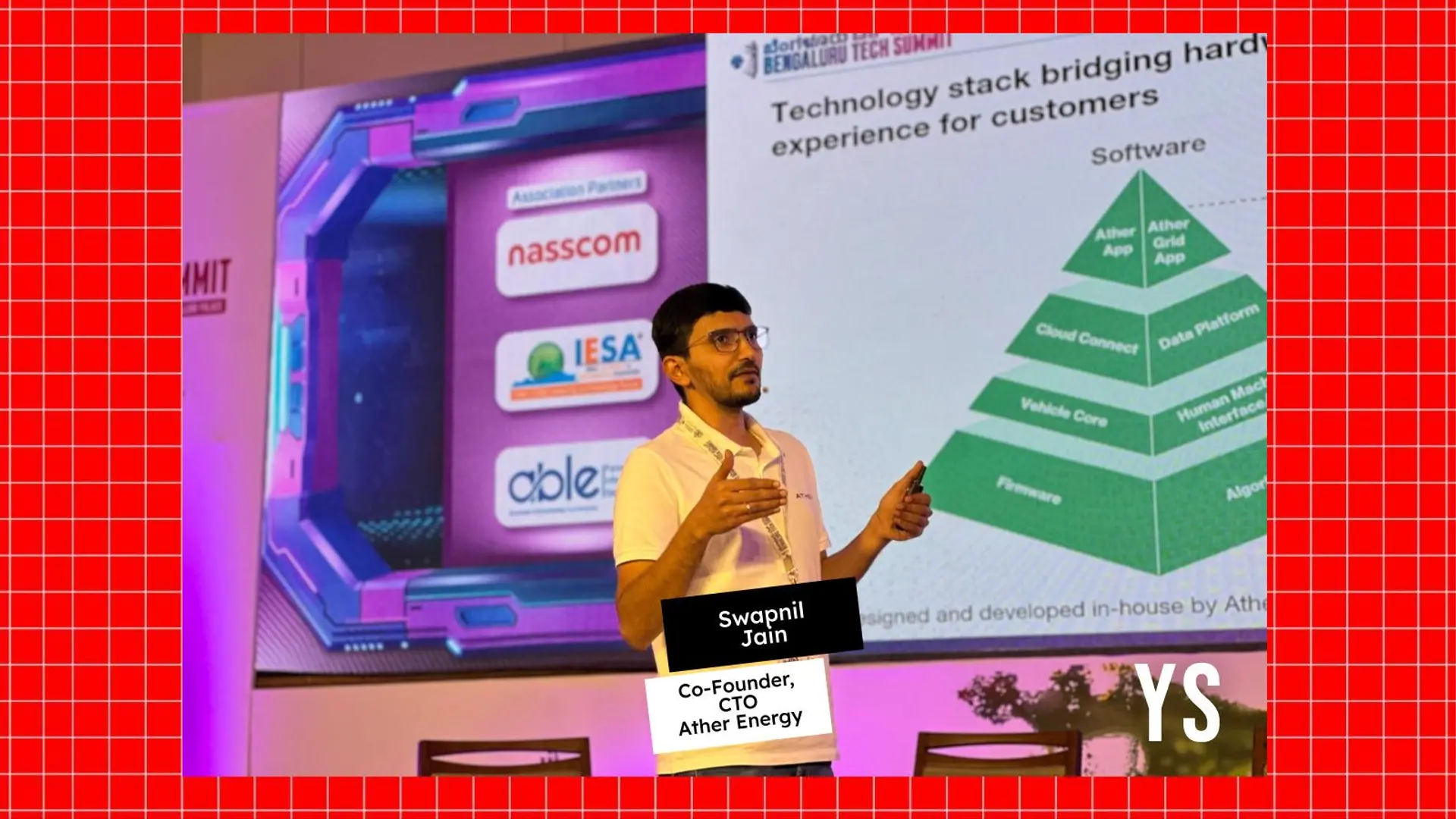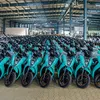There is not much benefit for a two-wheeler OEM to build their cells: Ather CTO
In his keynote address, Ather co-founder and CTO talked about how important it is for electric vehicle (EV) companies to own their entire technology stack.
A two-wheeler OEM would find it very difficult to justify the business case for manufacturing its cell, especially in an industry of high capital expenditure and low margins, said Ather Energy Co-founder and Chief Technology Officer (CTO) Swapnil Jain.
Speaking on the sidelines of the Bengaluru Tech Summit 2024, Jain said, “Personally, we believe that there isn't much benefit for a two-wheeler OEM to build their own cells.”
He added the two-wheeler market transitioning to electric would require about 60 GWh (gigawatt-hours) of battery capacity.
This means, a large original equipment manufacturer (OEM) would need anywhere between 25-30 GWh of battery capacity, which is a significant investment. When operating at this scale, battery cell manufacturers face thin profit margins.
While Ather does not see itself making any strides in battery manufacturing in the future, Jain said, “Well in the long term, unless we probably start making more than two-wheelers.” Also, he was quick to dismiss any developments outside of Ather’s current two-wheeler product line.
Commenting on Ather's new scooter, Rizta—which has contributed significantly to the EV maker's domestic dispatches—Jain said, “You can see that the volume numbers growth for Acer after the Rizta launch has been quite good. Especially, there are certain markets that were quite weak like Maharashtra, Gujarat, the western market, (and) the northern market. We have always been very strong in the southern market, slightly weaker in the western, and much weaker in the northern market. With Rizta, we have definitely started doing a lot better with the western market."
According to reports, the IPO-bound company’s total domestic dispatches were 16,582 units in September, with the Rizta accounting for 9,867 units.
Meanwhile, giving a keynote address on semiconductors and electronics becoming a geopolitical instrument, he said, “I believe technology is something, which is obviously at the heart of everything happening today. If you control the technology, you control everything; you can make everything happen if you actually control the technology.”
He added that Ather realised very early on how difficult it would be to build certain features on its products if the company depended on a third party to help them with it. The company understood the timeline and speed at which it wanted to roll out these technologies did not match up with the timelines laid out by the third party. Eventually, Ather decided to build the hardware, the flatware, and the entire assembly line for its vehicles.
“All of that we built in-house, which allowed us to actually bring down the cost 61% and build these features very rapidly and deliver it to the customers before any Tier I (vendor) could ever deliver,” he said.
He added, “If you are dependent on somebody else for your technology, if they are going to charge you a premium. They are going to control your trade, and they are going to slow you down if they want to, and you don't want to be in that place.”
Edited by Suman Singh




